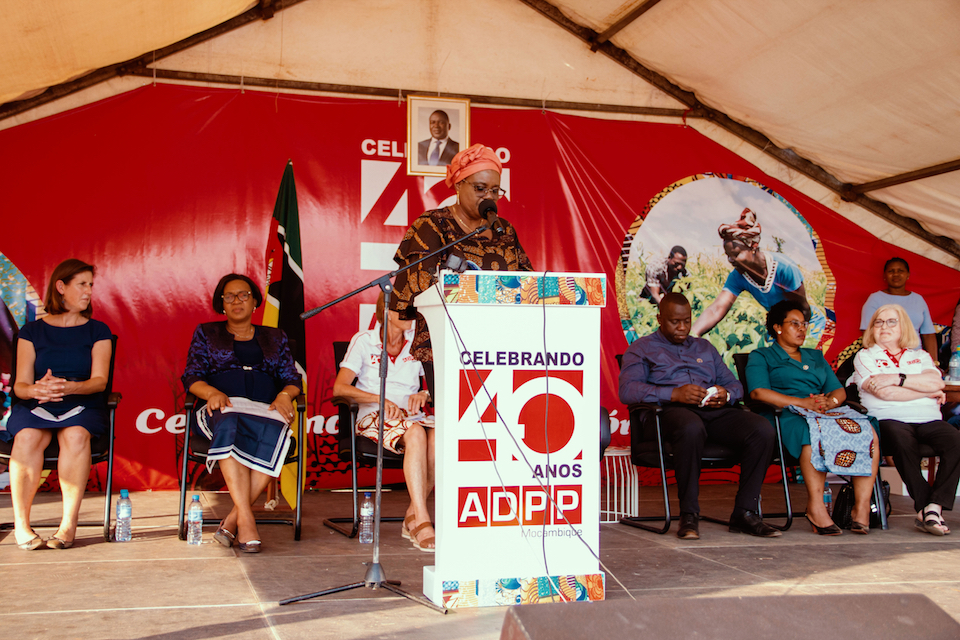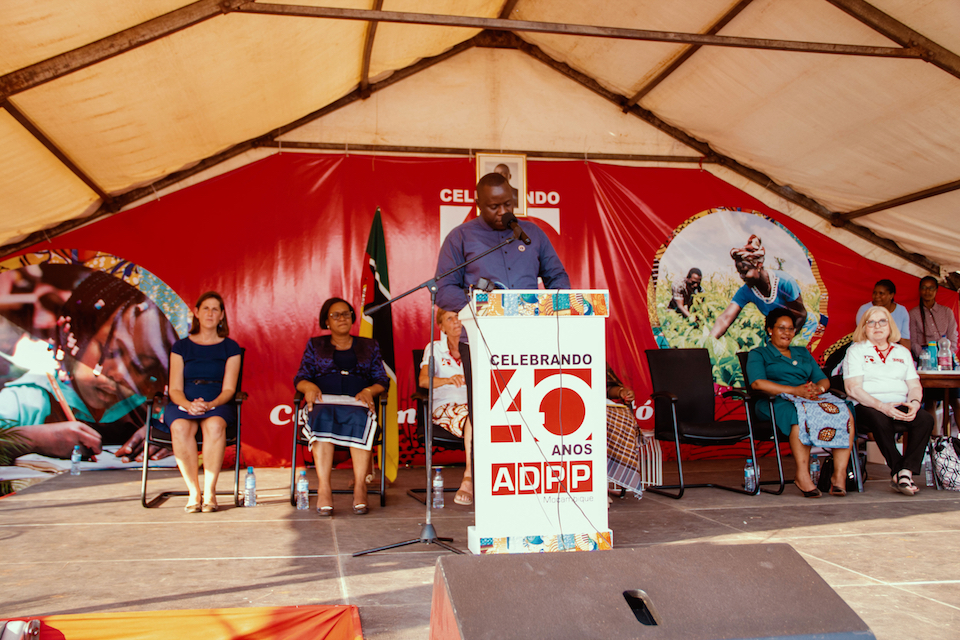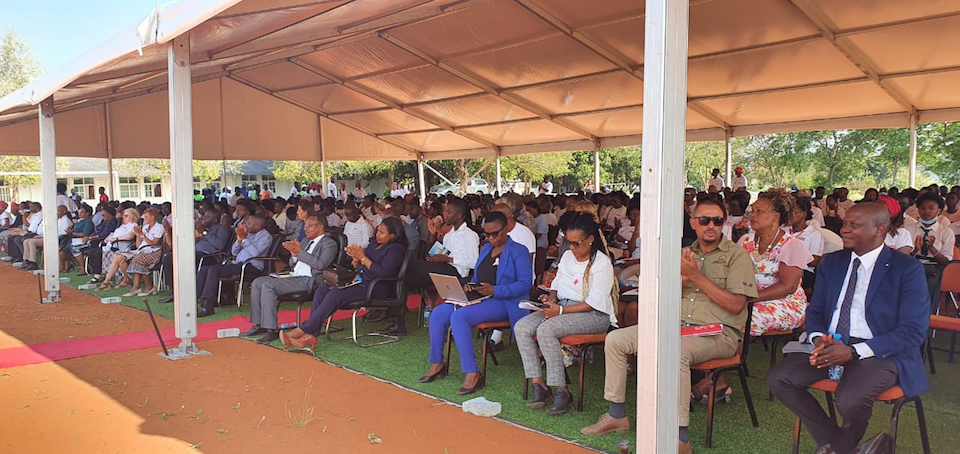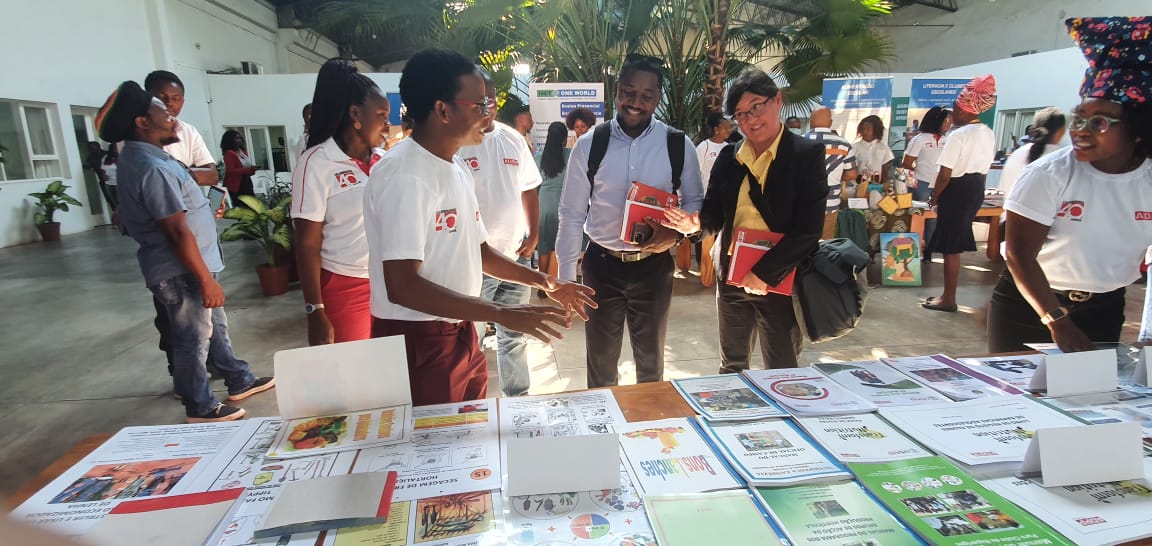The Minister of Education and Human Development, Carmelita Namashulua recently acknowledged ADPP's (Ajuda de Desenvolvimento de Povo Para Povo - People to People Development Aid) role in the development of the country, mainly in what concerns the Education sector.

The leader, who was speaking during the Celebration of the organization's fortieth anniversary under the slogan "Celebrating our history", hailed the organization for its contribution over the 40 years in the country's development in priority areas for the well-being of the population, namely Quality Education, Health and Welfare and Sustainable Agriculture and Environment.
"On behalf of the Government and the Ministry we represent, we want to express our recognition for ADPP's interventions not only in teacher training, its performance from pre-primary, secondary, technical-vocational and higher education, but also in inclusive education, girl's empowerment, education for citizenship, strengthening reading and writing, school feeding and all transversal areas linked to education and human development"- she said.

For his part, the Governor of Maputo province, Júlio Parruque, referred to the fact that the organization is a strategic partner of Maputo province.
"ADPP Mozambique is a strategic partner of our Province which since the early days of National Independence has contributed to the formation of the New Man. To have ADPP in Maputo province is a great privilege because this is the right partner whose presence has left indelible signs, definitively marking several Mozambican families and becoming in itself a mark of success, Mozambicanized that should not die".

The representative of USAID, one of ADPP's partners, Julie Boccanera, mentioned the positive impact it has created in the lives of thousands of Mozambicans mainly in the area of health.
"We see ADPP as a partner with joint investments in health and education programs over the past years, namely the projects funded by USAID and implemented by ADPP such as the Transform Nutrition project in Nampula, the Local TB Response Project in Nampula, Zambezia, Tete and Sofala, the Support Reading Project in 12 districts in Nampula province, and the Recovery project in Cabo Delgado. ADPP is an example of a local organization with a potential for growth and increasingly consistent implementation of development programs," She said.

To describe the positive impact of the organization's activities over the 40 years, Birgit Holm, Executive Director made a reconstruction of ADPP's history pointing out the main milestones.
"Over the 40 years our work has had an impact on the lives of millions of Mozambicans. Initially we focused on the area of education, first in literacy and then we evolved to teacher training. Starting in 1998 we expanded our activities to the health sector with the first program focused on the fight against HIV/AIDS, which was the major concern at the time. Agriculture came to merit attention in our activities in 2004 through a farmers' club approach, still in use in the projects we implement today," he said.
The participants of the event had the privilege of visiting the exhibition of the main projects in the three areas of intervention, and were also able to explore the history of the organization since its creation in 1982, through elements represented by the art on its mural.

